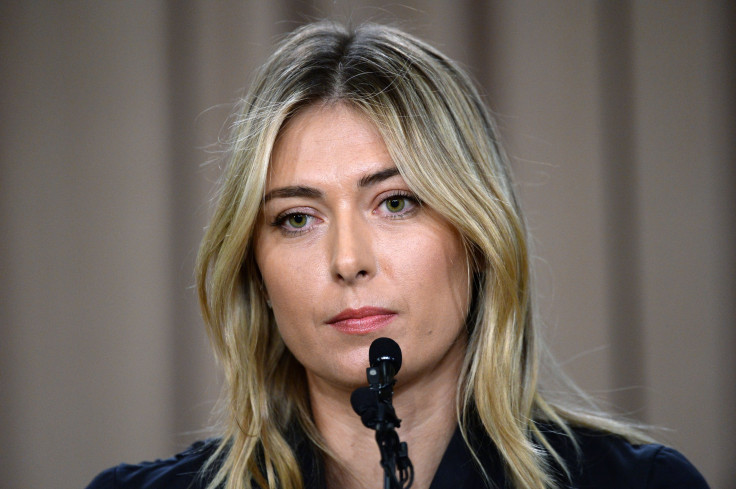Maria Sharapova Suspension: Russia Tennis Star Banned For 2 Years For Failed Drug Test

Maria Sharapova has been banned for two years by the International Tennis Federation after testing positive for banned substance meldonium at the Australian Open in January. The ITF had wanted a four-year ban for the five-time Grand Slam champion, but an independent tribunal ruled that the use of the drug was not intentional, meaning a two-year ban was the maximum punishment.
After being initially notified of the failed test, Sharapova revealed she had been taking the blood-flow boosting drug, which had been added to the World Anti-Doping Agency’s banned list at the start of 2016, since 2006. And that prompt admission led to the ITF backdating the suspension to Jan. 26 this year, when she tested positive.
Still, Sharapova immediately confirmed she intends to appeal the ban to the Court of Arbitration for Sport, with a statement on her Facebook page.
“Today with their decision of a two year suspension, the ITF tribunal unanimously concluded that what I did was not intentional,” she said. “The tribunal found that I did not seek treatment from my doctor for the purpose of obtaining a performance enhancing substance. The ITF spent tremendous amounts of time and resources trying to prove I intentionally violated the anti-doping rules and the tribunal concluded I did not.
“While the tribunal concluded correctly that I did not intentionally violate the anti-doping rules, I cannot accept an unfairly harsh two-year suspension.”
Sharapova has claimed from the outset that she was not aware that meldonium had been added to the banned list. Yet the Women’s Tennis Association (WTA), which now faces the loss of one of its most popular players and for a long time its most marketable, said in a statement that ignorance could be no excuse.
“It’s important at all times for players to be aware of the rules and to follow them,” it read. “In this case, Maria has taken responsibility for her mistake from the outset. The WTA supports the process that the ITF and Maria have followed.”
As it stands, Sharapova would not be able to return to competitive tennis until Jan. 26, 2018. That means she would miss eight Grand Slam tournaments as well this summer’s Olympics. The Russian took the silver medal in London four years ago. The first Grand Slam tournament the 29-year-old would be able to compete in would be the 2018 French Open.
Sharapova’s last Grand Slam win came at Roland-Garros in 2014, the same Paris venue where two years earlier she became the 10th woman to win a Career Grand Slam. She previously won the 2006 U.S. Open, the 2008 Australian Open, and Wimbledon in 2004, after bursting to global stardom in 2003 as the WTA Newcomer of the Year.
She now faces a long road back to the top, however, even if her ban is ultimately reduced. Ranked No. 5 at this year’s Australian Open, Sharapova has not only been stripped of the points earned from reaching the quarterfinals in Melbourne but has dropped to No. 26 in her subsequent four months on the sidelines. She has not finished a year ranked outside of the top 20 since 2003, when she was just 16.
© Copyright IBTimes 2024. All rights reserved.





















